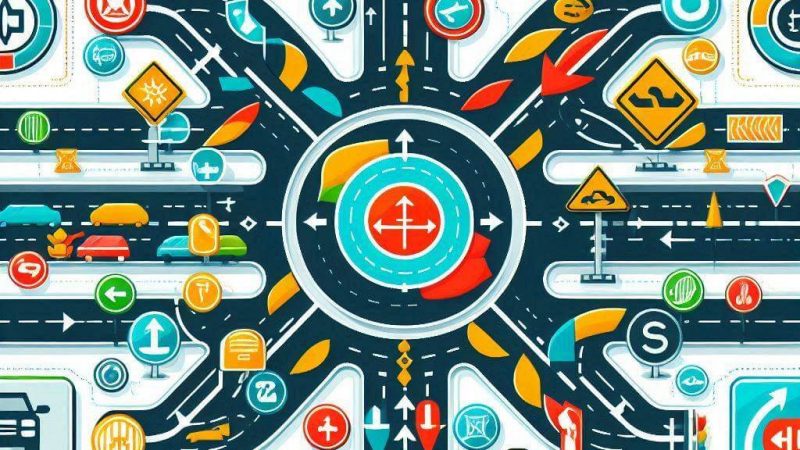Fuel Efficiency Explained: Tips for Driving Economically

In today’s world, the rising cost of fuel and growing concerns about environmental impact have made fuel efficiency a critical focus for drivers everywhere. Understanding how to drive economically not only saves money at the pump but also contributes to a healthier planet. In this article, we’ll explore what fuel efficiency is, why it matters, and provide practical tips to help you maximize your vehicle’s fuel economy.
Contents
Understanding Fuel Efficiency
What is Fuel Efficiency?
Fuel efficiency refers to the distance a vehicle can travel on a specific amount of fuel. It is commonly measured in miles per gallon (MPG) or liters per 100 kilometers (L/100km). Higher fuel efficiency indicates that a vehicle can cover more distance using fewer resources, making it both cost-effective and environmentally friendly.
Why Fuel Efficiency Matters
- Cost Savings: With fuel prices fluctuating, a fuel-efficient vehicle can significantly reduce your monthly driving expenses.
- Environmental Impact: Better fuel efficiency means lower greenhouse gas emissions, which are essential for combating climate change.
- Vehicle Longevity: Economic driving habits can lead to less wear and tear on your vehicle, prolonging its lifespan.
Tips for Driving Economically
1. Adopt Smooth Driving Techniques
Aggressive driving—characterized by rapid acceleration, hard braking, and high speeds—can waste fuel. Here are key techniques for smoother driving:
- Maintain a Steady Speed: Use cruise control on highways to avoid unnecessary acceleration and deceleration.
- Anticipate Stops: Look ahead and adjust your speed accordingly to reduce sudden braking, which consumes more fuel.
2. Monitor Your Speed
Driving at high speeds increases aerodynamic drag and decreases fuel efficiency:
- Optimal Speed: Most vehicles achieve their best fuel economy between 45-65 mph (72-104 km/h). Aim for this range to optimize your fuel usage.
3. Reduce Excess Weight and Drag
Carrying extra weight or adding roof racks can drastically affect fuel efficiency:
- Declutter Your Vehicle: Remove any unnecessary items from your trunk or backseat.
- Aerodynamics: If you don’t need it, take off the roof racks or cargo carriers to minimize air resistance.
4. Keep Your Engine Well-Maintained
A well-maintained vehicle runs more efficiently:
- Regular Service: Follow your vehicle manufacturer’s maintenance schedule; this usually includes oil changes, air filters, and spark plugs.
- Check Tire Pressure: Under-inflated tires can cause increased rolling resistance, resulting in higher fuel consumption. Regularly check and maintain proper tire pressure.
5. Use Air Conditioning Wisely
While air conditioning can offer comfort, its usage can impact fuel efficiency:
- Balance Comfort with Efficiency: Use the AC sparingly and consider rolling down the windows at lower speeds. On highways, the AC may be more efficient than having windows down due to reduced drag.
6. Plan Your Routes Efficiently
Trim unnecessary miles and time spent on the road:
- GPS Navigation: Use a navigation app to find the quickest or most fuel-efficient routes. Look for options that factor in traffic and road conditions.
- Combine Errands: Try to complete multiple tasks in one trip to avoid multiple start/stops, which can waste fuel.
7. Consider Your Vehicle
Your choice of vehicle plays a significant role in fuel efficiency:
- Fuel-Efficient Models: If you’re in the market for a new or used vehicle, consider those specifically designed for better fuel economy, such as hybrids or electric vehicles.
The Role of Driving Habits and Behavior
1. Avoid Idling
Idling can consume fuel unnecessarily. If you anticipate being stopped for more than a minute, consider shutting off your engine.
2. Limit Short Trips
Short trips, particularly in winter, can drain fuel as it takes time for the vehicle to reach optimal fuel efficiency. Consider carpooling or using other forms of transportation when possible.
3. Be Mindful of Accessories
Having electronic devices or heating systems running in your car will draw power from your engine, potentially leading to increased fuel consumption. Use these sparingly.
Achieving optimal fuel efficiency requires a combination of smart driving habits, routine maintenance, and mindful usage of your vehicle’s features. By following the tips outlined in this article, drivers can save money and lessen their environmental impact. Fuel efficiency isn’t just about maximizing the distance between fill-ups—it’s about making informed choices that benefit both your wallet and the planet. With a concerted effort to drive economically, every driver can contribute to a more sustainable future. Happy driving!


